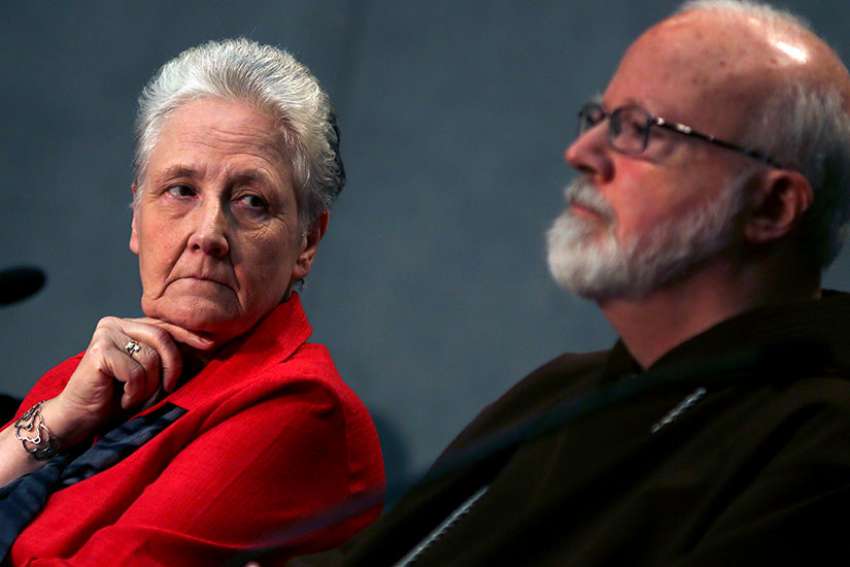In a huge setback for the Pope, Collins on Wednesday (March 1) announced that she had resigned from the Pontifical Commission for the Protection of Minors established by the pontiff in 2013 to counter abuse in the church.
She said the Pope’s decision to create the commission was a “sincere move” but there had been “constant setbacks” from officials within the Vatican.
“There are people in the Vatican who do not want to change or understand the need to change,” Collins said in a telephone interview from her home in Ireland.
“I find it shameful,” Collins said. “The work we want to do is to make children and young adults now and in future safer in the church environment from the horror of abuse.”
Collins, who was raped at age 13 by a hospital chaplain in Ireland, was the only active abuse survivor on the Vatican panel since British survivor, Peter Saunders, was stood aside last year for his outspoken criticism. Saunders has not resigned or been formally dismissed.
She said it was “soul-destroying” dealing with resistance in the Curia, the Vatican administration. While she did not name the main curial department, or "dicastery," to which she was referring, the commission was dealing chiefly with the Congregation for the Doctrine of the Faith.
“They are refusing to co-operate on letting us work with them,” Collins said. “I can’t stick with it anymore.”
The Vatican announced Collins’ resignation as she released her own statement on her personal website.
She described the blocking of “a simple recommendation approved by Pope Francis” by Vatican officials late last year as “the last straw” that led her to resign.
Collins informed the head of the commission, Boston Cardinal Sean O’Malley, that she intended to resign on Feb. 13.
In a statement, O’Malley thanked Collins for her “extraordinary contributions."
“We will certainly listen carefully to all that Marie wishes to share with us about her concerns and we will greatly miss her important contributions as a member of the Commission,” O’Malley said.
Since his election four years ago, the Pope has taken a strong stand on clerical sexual abuse and declared “zero tolerance” for abuse within the church.
But victims’ groups claim he has not done enough to hold bishops and priests to account for church abuse scandals that have emerged in Ireland, Germany, the U.S., Australia and other countries in the past 15 years.
Last year Francis approved tougher measures designed to make bishops more accountable for abusers and to mandate their removal if found to be “negligent."
In an interview with RNS last year Collins expressed optimism about the panel’s work and specifically cited the commission’s participation in an orientation program for new bishops at the Vatican.
Collins said she would continue to work with O’Malley in an educational role on guidelines for new bishops.


